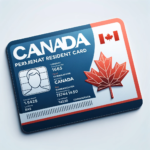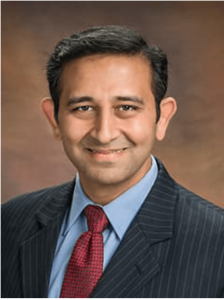I’m here to provide you with an exhaustive and fundamental guide, tailored specifically for medical students pursuing their MBBS. We will meticulously explore how to strategically navigate the path on how to become a doctor in Canada. Join me on this journey, and let’s embark on this enlightening adventure together.
Are there any barriers for foreign trained medical students to become a doctor in Canada?
For International Medical Graduates (IMGs), the journey to become a doctor in Canada is marked by several significant challenges. These range from substantial hurdles to more manageable obstacles.
A primary hurdle is the requirement of Canadian permanent residency status to participate in residency matching. This is a crucial step in the journey to practicing medicine in Canada.


Secondly, achieving exceptional scores in the Medical Council of Canada Qualifying Examination Part I (MCCQE1) is imperative. This exam is a pivotal component in assessing your medical knowledge and competencies. Click here to know how to get good scores on MCCQE1.
The third major challenge is the necessity of compiling a comprehensive and impressive application package for residency matching. This package is critical in demonstrating your qualifications and suitability for a residency position.

If you’re currently an MBBS student in your 2nd, 3rd, or 4th year and have decided to pursue your medical career in Canada, it’s essential to understand and prepare for these challenges well in advance. This proactive approach can significantly enhance your chances of successfully navigating the complex process of establishing a medical career in Canada.
How to be successfully match into CARMS residency to become a doctor in Canada?
As an MBBS student eyeing a medical career in Canada, strategic planning during your study years is crucial. Here’s a structured approach you can follow:
Canadian Permanent Residency: Since residency matching in Canada often requires permanent residency status, your first focus should be on understanding and navigating Canada’s point-based immigration system. Visit the Government of Canada’s website to assess your eligibility and points score. If you’re committed to moving to Canada, start the process of applying for permanent residency as early as possible.
MCCQE1 Preparation: Concurrently, you must dedicate effort towards excelling in the MCCQE1 examination. For this, specific study materials are recommended:
- USMLE World for Step 2 CK (Clinical Knowledge)
- First Aid for USMLE Step 2 CK
- Toronto Notes
- Canada Q bank
These resources are pivotal for a strong preparation. Aim for a high score, ideally above 260, with 280 being even more desirable, considering the scoring range is between 100 to 400.
Research and Publications: In the competitive field of medicine, having research or educational publications under your belt can significantly bolster your application. While challenging, getting published in journals, newsletters, or online platforms can enhance your visibility and credibility.
Externship/Clerkship Opportunities: Gaining hands-on experience in a hospital setting outside your home country, especially in Canada or the USA, is invaluable. These experiences not only enrich your CV but can be decisive factors in your residency application. They provide practical exposure and demonstrate your adaptability to different healthcare environments.
At IMG Secrets, we understand the importance of these steps in building a competitive profile for the CaRMS residency application. We offer opportunities for hands-on experience in the USA. Check out our website to learn more and book your slot to strengthen your application and enhance your chances in the competitive journey towards becoming a doctor in Canada.
How to become a doctor in Canada if i have already graduated out of medical college?
Once you’ve graduated from medical school and completed your MBBS, followed by a year of internship, it’s crucial to maintain the momentum in building a strong CV. This phase is about consolidating your experiences and achievements, as each element plays a significant role in your residency application package.
During your internship, continue enhancing your CV in all key aspects:
-
Clinical Experience: Your internship is the perfect time to gain diverse clinical experience. Try to engage in varied medical settings to broaden your understanding and skills.
-
Research and Publications: If you haven’t already, actively seek opportunities for research and publishing. This adds a significant edge to your profile.
-
Professional Networking: Utilize this time to network with healthcare professionals and mentors who can provide valuable guidance and potential letters of recommendation.
-
Language Skills: Language proficiency can be a determining factor, especially in certain provinces. For instance, if you’re not proficient in French, it might be wise to focus on provinces other than Quebec.
-
Provincial Requirements: Canada’s provinces have specific requirements for IMGs. For example, British Columbia has an additional IMG program that you might need to complete. This is also true for Alberta, Saskatchewan, and other provinces. It’s essential to research and understand these provincial-specific requirements well in advance.
-
Plan Strategically: Based on your preferred province, align your preparation and experiences to meet their specific criteria. This might include additional exams, certifications, or specific clinical experiences.
Remember, the path to practicing medicine in Canada as an IMG is intricate and requires careful planning and execution. Staying informed about the specific requirements of your chosen province and continuously building your professional profile are key steps towards achieving your goal.
When should I be prepared for my CARMS residency application?
If you’re aiming to start your postgraduate training or residency in Canada by July 2025, it’s crucial to be strategic and timely in your preparations. Here’s a breakdown of the timeline and key steps you should follow:
-
Be Prepared by August 2024: To be well-positioned for the residency application cycle, you should have all your requirements ready by August 2024. This includes completing all necessary examinations, gathering documents, and fine-tuning your application package.
-
Application Cycle Opens in September 2024: The CaRMS (Canadian Resident Matching Service) application cycle typically opens in September. By this time, your application should be complete and ready to submit. This includes your academic transcripts, letters of recommendation, personal statements, and any other required documents.
-
Submission to CaRMS: Once the CaRMS matching application opens, you should promptly submit all your documents and requirements. The earlier you submit your application, the better your chances are of it being reviewed early by the residency programs.
-
Programs Review Applications: Within 2 to 3 weeks after the application cycle opens, residency programs start accessing and reviewing the CaRMS applications. Being early in the process can be advantageous as it increases the likelihood of your application being seen and considered promptly.
-
Interview Invitations: If a program finds your application appealing and you meet their criteria, they may invite you for an interview. This is a critical stage in the matching process, so being prepared and responding promptly to interview invitations is crucial.
In summary, for a successful residency application in Canada, it’s essential to be proactive, well-prepared, and timely. Having everything ready before the application cycle opens can significantly improve your chances of catching the attention of residency programs and moving forward in the matching process.
Can IMG Secrets help me with my journey to become a doctor in Canada?
At IMG Secrets, we understand the complexities and challenges faced by International Medical Graduates (IMGs) aspiring to enter residency programs in Canada. To address this, we’ve developed the “Road 2 Residency” program, specifically designed to guide IMGs through each step of the CaRMS residency matching process.
Here’s how our program can assist you:
-
Expert Mentorship: By booking an appointment on our website, www.IMGSecrets.com, you gain access to experienced mentors who have navigated the CaRMS process successfully. They offer personalized guidance tailored to your individual needs and goals.
-
Step-by-Step Guidance: Our mentors will walk you through each phase of the residency application process. From preparing your application package to understanding the nuances of different provincial requirements, they provide insights and strategies to enhance your application.
-
Interview Preparation: A critical component of the residency application process is the interview. Our experts provide comprehensive coaching, including conducting mock interviews. This preparation aims to build your confidence, polish your communication skills, and equip you with the techniques to make a strong impression during the actual residency interviews.
-
Positioning for Success: Our goal is to help you position yourself effectively to increase your chances of being selected for an interview. We focus on highlighting your strengths, addressing any potential weaknesses, and ensuring that your application stands out in a competitive field.
-
Continued Support: The Road 2 Residency program is not just about getting you to the interview stage; we offer continued support and advice throughout the entire residency matching process.
Our commitment at IMG Secrets is to provide IMGs with the tools, knowledge, and support necessary to navigate the complex pathway to a medical residency in Canada successfully. We encourage you to explore our program and see how we can be a part of your journey to becoming a successful medical practitioner in Canada.
Do I become a doctor in Canada after the interview?
Once you successfully navigate through the residency interview process and receive the much-awaited offer letter confirming your match in a Canadian residency program, it marks a significant achievement. Congratulations are indeed in order, as this is a testament to your hard work, dedication, and perseverance.
The journey ahead, post-match, follows a more structured path:
Complete Your Residency Training: The duration of your residency training will depend on the specialty you’ve chosen. Residency programs in Canada can range from 2 to 8 years. This period is critical for gaining in-depth clinical experience and developing the skills necessary for your medical specialty.
Final Examination: Towards the end of your residency, you’ll be required to pass a final examination. This exam is a crucial step towards obtaining your certification.
Royal College Certification: After completing your residency and passing the final exam, you will be eligible to become certified by the Royal College of Physicians and Surgeons of Canada. This certification is a prestigious achievement and is recognized as a mark of excellence in the medical profession.
Starting Your Medical Career in Canada: With your residency completed and certification in hand, you are now ready to embark on your professional medical career in Canada. Whether you choose to enter practice, pursue further specialization, or engage in research, the opportunities ahead are vast and promising.
As you prepare for this exciting and challenging journey, remember that it’s not just about the destination but also about the journey itself. Each step you take in this process contributes to your growth and development as a medical professional.
We at IMG Secrets wish you the very best in your move to Canada for your residency matching and subsequent medical career. May your journey be fulfilling and your career prosperous.
This article was originally published on www.imgsecrets.com. Should you encounter it on any other site, please be aware that it is plagiarized content. We urge you to report such instances immediately to contactus@imgsecrets.com to help us maintain the integrity of our work

Dr. Rajeev Iyer, MBBS, MD, MS, FASA (USA)
Associate Professor of Anesthesiology
University of Pennsylvania, Philadelphia, USA
The opinion expressed in this article are author’s own and does not represent the opinion of the University of Pennsylvania or any other organization.

